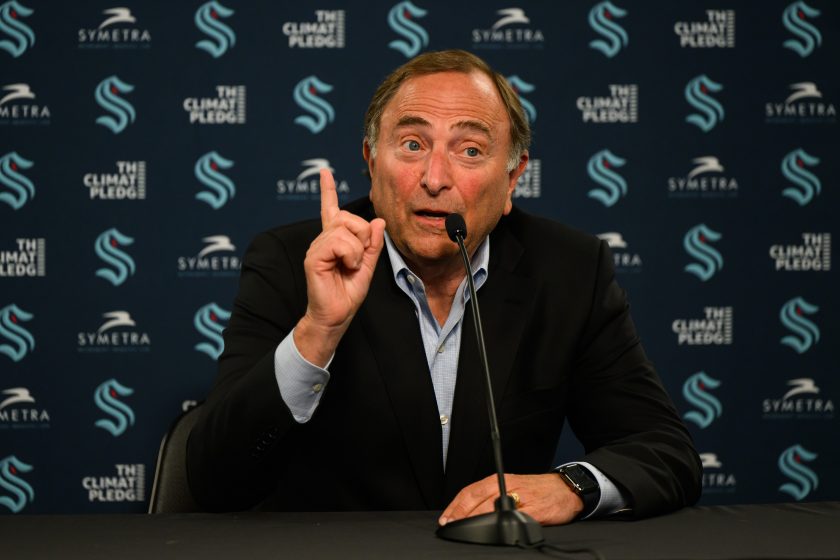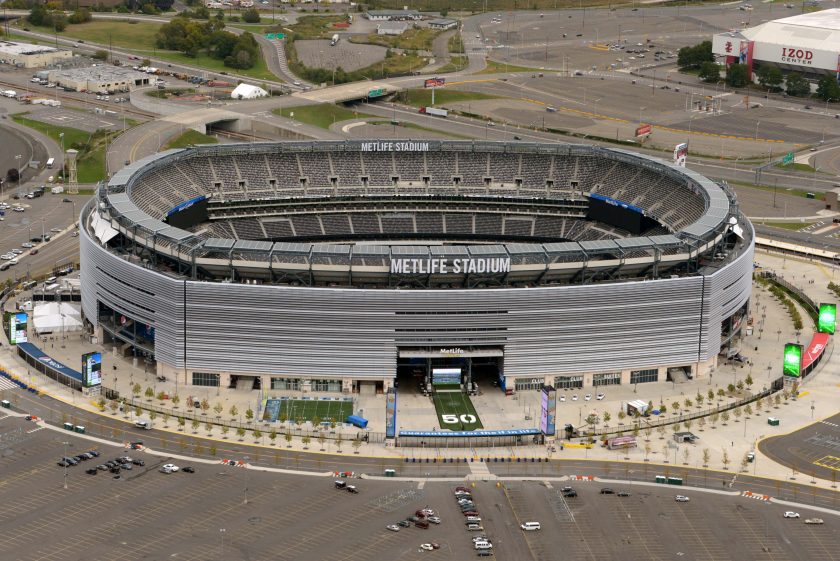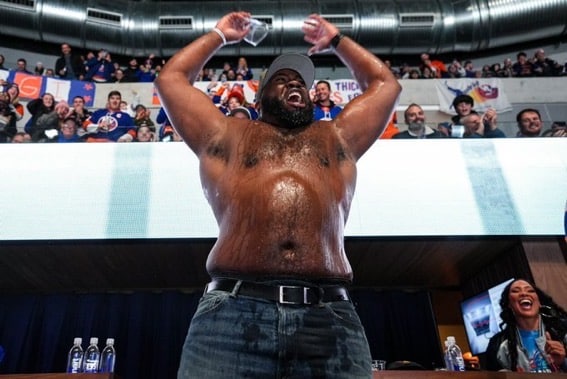ESNY’s New York Islanders-Carolina Hurricanes playoff series preview
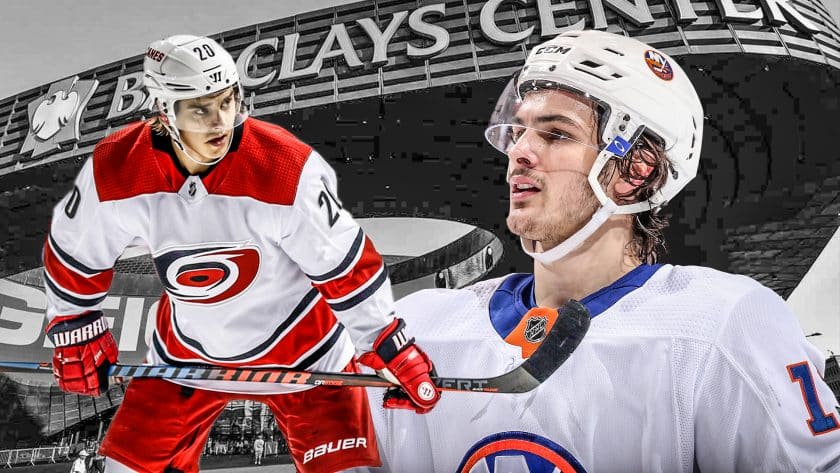
The Carolina Hurricanes ended the Capitals’ bid for a repeat, but did the New York Islanders actually draw a more favorable matchup?
[dropcap]T[/dropcap]he New York Islanders looked on as Brock McGinn‘s overtime goal secured his Carolina Hurricanes a second-round meeting in Brooklyn.With the Capitals eliminated, it’s the first time since the NHL split into divisions (1967-68) that every division winner was ousted in the first round. It also kills the chance for Barry Trotz to oust his former squad in the post-season as they couldn’t even make it to the Island, let alone get through it.
The Islanders are aware of the pros and cons of getting back into a series as a “rested” team vs. a team with little interval between rounds. Johnny Boychuk, Cal Clutterbuck, Jordan Eberle and Scott Mayfield all left Game 4 with a variety of medical issues, with Boychuk out at least three weeks.
This will be the first-ever playoff match-up between both of these franchises, which is a testament to how historic the 2019 Stanley Cup Playoffs have been thus far. Expectations have bee subverted to the point that the NHL is allowing dead brackets a second chance.
"It's just nice to know we're finally getting to play some hockey here. Energy was up today, it's good, it's fun." @barzal_97 #Isles pic.twitter.com/OjaSWEJz27
— New York Islanders (@NYIslanders) April 25, 2019
If there’s one thing that this year’s post-season has shown, it’s to throw away any previous bias once the playoffs start. It makes more sense to compare both clubs’ playoff stats, and how both teams changed from the transition of the Regular Season to the Stanley Cup Playoffs.
[sc name=”Islanders Title” text=”Those Bunch of jerks” ]It’s really hard to not feel good for what the Carolina Hurricanes have done this season.
Those within and around the Isles fanbase understand the feeling of neglect that comes with long stretches of mediocrity or worse. For a while, the Hurricanes defined the term “bubble team.”
The Edmonton Oilers qualifying for the post-season in 2016-17 gave the Hurricanes the longest-active playoff appearance drought. At the time, it didn’t seem that would change.
New ownership under Tom Dundon successfully breathed new life into the team including bringing new personnel including a General Manager and Head Coach (sounds awfully familiar).
A healthy amount of retooling via the Calgary Flames and plucking Calvin de Haan in free agency to round out their defensive core brought the Hurricanes back to the playoffs for the first time in exactly a decade.
Not only that, but the Hurricanes ousted the defending Stanley Cup Champions and moved onto the second round for the fifth time in their six playoff appearances as a franchise.
Before getting a look at the roster, here’s an overview of how the Hurricanes compared from the regular season to the playoffs thus far:
| Carolina Hurricanes | Regular Season | Stanley Cup Playoffs |
|---|---|---|
| Goals For (Avg) | 2.96 | 3.00 |
| Goals Against (Avg) | 2.70 | 2.86 |
| Power Play | 17.8% | 12.0% |
| Penalty Kill | 81.6% | 75.0% |
| Shots For (Avg) | 34.4 | 33.4 |
Point Scorers
The Carolina Hurricanes are a very sneaky offensive team.
Carolina’s biggest offseason move in terms of on-ice personnel was shipping off Jeff Skinner. Sebastian Aho capped off his first 30-goal season (he had 29 at the end of last season) and led the team with 83 points. For his third-straight season with the Carolina Hurricanes, Teuvo Teravainen saw his point total go up yet again to 76 (21 goals).
In terms of stand-out offensive talent, that’s really it. Justin Williams was third on the team in scoring with 23 goals and 53 points, with Michael Ferland, Andrei Svechnikov and Nino Niederreiter rounding out the top-six.
Much like the Islanders, the Hurricanes found scoring from a long list of 20-point plus players. One of the great things about the Stanley Cup Playoffs is the unexpected, and the top two players who lead the Hurricanes in playoff points certainly weren’t expected.
[sc name=”Islanders Center” ]Warren Foegele was drafted by the Hurricanes in the third round of the 2014 NHL Draft. 2018-19 was his first full NHL season after playing two games the year prior.
Foegele managed 10 goals and 15 points through 77 games in his rookie season.
In his first Stanley Cup Playoff series, he netted four goals and two assists in seven games against the defending Stanley Cup Champion Washington Capitals. Foegele is the largest piece in the Canes offense and must be one of the defense’s priorities.
Team Defense
The Hurricanes are a very fast-paced, stingy offensive team. Their defense has done a terrific job of getting involved in production, highlighted by Jaccob Slavin leading the team with nine points.
Their overall philosophy when it comes to offense rivals that of the 2017-18 Islanders, but with far more defensive awareness. It’s an aggressive style that can lead to mistakes and sometimes has for them.
More so than the Pittsburgh series was made out to be, this will be a strong clash of hockey philosophy. The unrelenting firepower of the Hurricanes vs the stunting defense of Barry Trotz’s Islanders.
The Hurricanes continued their high shot production in the post-season and managed to out might Washington’s top guns. Alex Ovechkin managed four goals and nine points in seven games, compared to the two goals and five points he managed in the Caps’ seven games series against the Islanders in 2015.
While the Hurricanes aren’t a bad team defensively, they had absolutely no answer for any of Washington’s best scorers. All managed just fine between the team structure, and the man between the pipes.
Goaltending
For the first time since 2016, Petr Mrazek went into the Stanley Cup Playoffs as a starting goaltender. His post-season performance through seven games exemplifies how the team looked in front of him on the ice.
In his first two starts, Mrazek allowed three and four goals apiece for .824 and .879 respective save percentages. When the Hurricanes put up a dominant performance in Game 3, he earned an 18-save shutout and in both Games 6 and 7, he managed .919 and .920 save percentages respectively, indicative of how much the Canes were pushing as a unit.
Through seven games he possesses a .899 save percentage. In the three losses he took, he had a .829 save percentage. In the four wins the Hurricanes had, he averaged a .952 save percentage.
While this may seem like it’s stating the obvious, it’s indicative of one key difference between Robin Lehner and Petr Mrazek — Mrazek is not likely to steal a game for his team.
Mrazek is the final barrier between the Canes occasional hiccups, and one that’s more likely to have holes.
[sc name=”Islanders Title” text=”The Matchup” ]Unlike the Hurricanes, the New York Islanders are a team that caught fire in all the best places at precisely the right time.
The top six carried momentum from the final weeks of the regular season right into the playoffs. Jordan Eberle scored one goal in each of the first four games and had six points in the series. Mathew Barzal was hungry as ever for playoff hockey and netted five assists in his first four games.
Valtteri Filppula, doubtful to appear in any game in the first round, had four assists in the first four games.
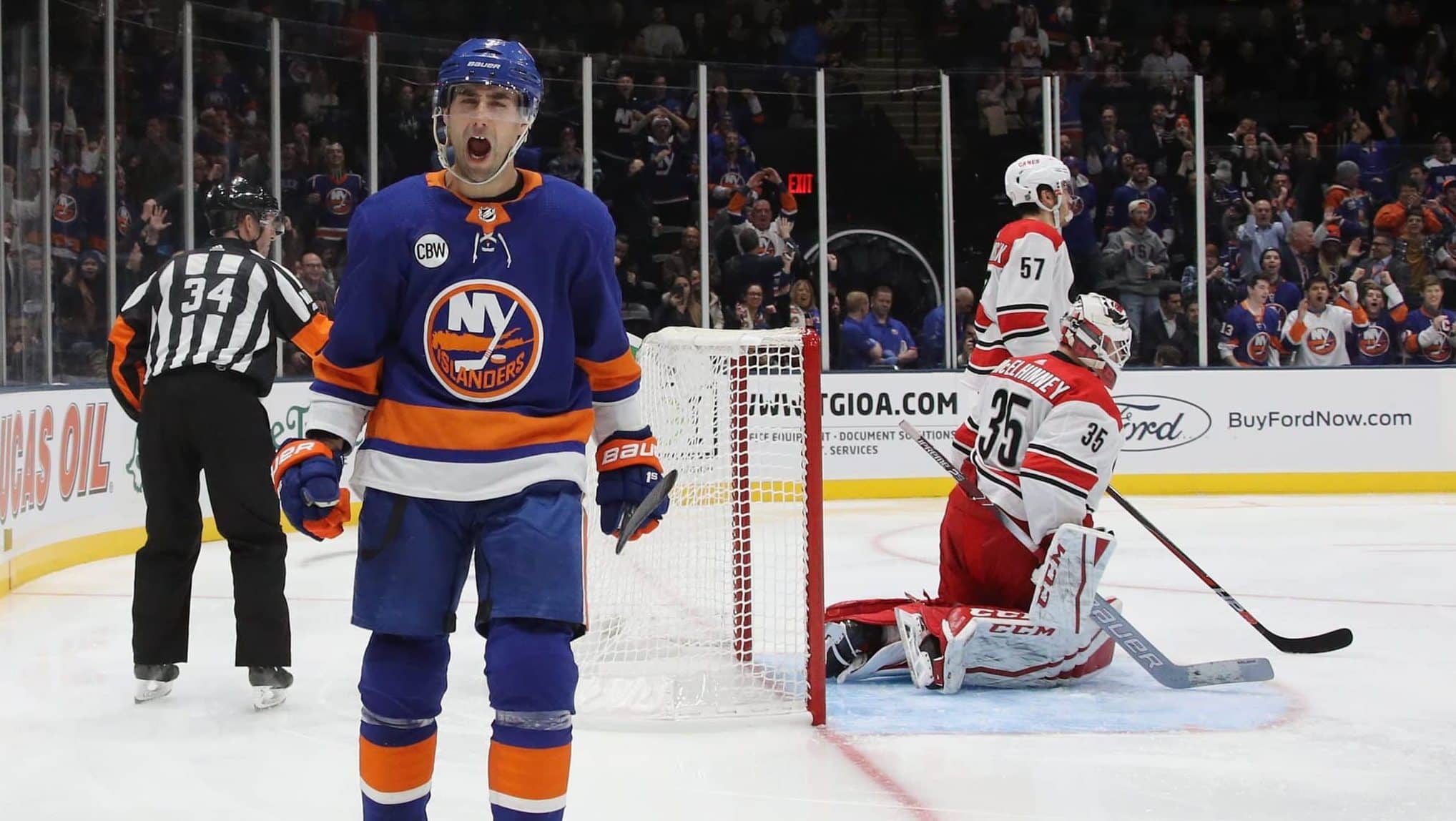
The Islanders offense didn’t just rise to the occasion, but was able to put up multi-goal leads in all three games after Game 1’s overtime thriller.
Defensively, the Islanders are as sound as ever. The Penguins’ top guns were silenced — Sidney Crosby had a single assist in all four games, Phil Kessel was held to two points and Jake Guentzel had a single goal.
The Islanders brand of hockey was perfected throughout the later stretch of the regular season, and nothing changed since. The Isles lead all playoff teams in fewest goals-against average, and Robin Lehner’s .951 save percentage leads all post-season goaltenders.
Any questions surrounding Lehner’s playoff capability need not ask, Game 1 was statistically his worst performance of all four games and even then Lehner finished with a .932 save percentage.
[sc name=”Islanders Title” text=”The Verdict” ]The Isles biggest concern in taking this series lies in how they come out in Game 1.
Though the change in venue doesn’t matter as much as others may say, the Hurricanes will have no problem getting right into the game from puck drop. Though the Islanders needed time off, they’ll need a fast start to take control of the pace quickly, especially at home.
One game doesn’t make or break a series, but the start is crucial. If the Isles drop the first game, they’ll split at home at best and head back to Carolina to play a team that has given them fits in the past at home where they are 3-0.
All things considered, the Islanders can approach this series with cautious optimism. While Carolina is a stingy group, there’s no doubt the Islanders prefer the match-up against the bunch of jerks over the former defending champions.
With superior talent on their side and a rested group, the Islanders will have their work cut out for them but can still overpower the Hurricanes resiliency.
New York Islanders in six games.
[sc name=”Islanders Link Next” link=”https://elitesportsny.com/2019/04/24/thomas-hickey-is-the-next-man-up-for-the-new-york-islanders-blueline/” text=”The New York Islanders Need Thomas Hickey to Step Up” ]Grew up a diehard Islanders and Mets fan based out of Northern New Jersey.
Concluding my Broadcast Communications degree at William Paterson University. WP Sportsdesk member, Stan Fischler correspondent, music buff and total Star Wars freak. Follow my social media handles to learn more.
Matt Di Giacomo is a Staff Writer for the Islanders on Elite Sports NY. He encourages team discussion. Tweet him @mdigiacESNY and check out his reviews on YouTube.



